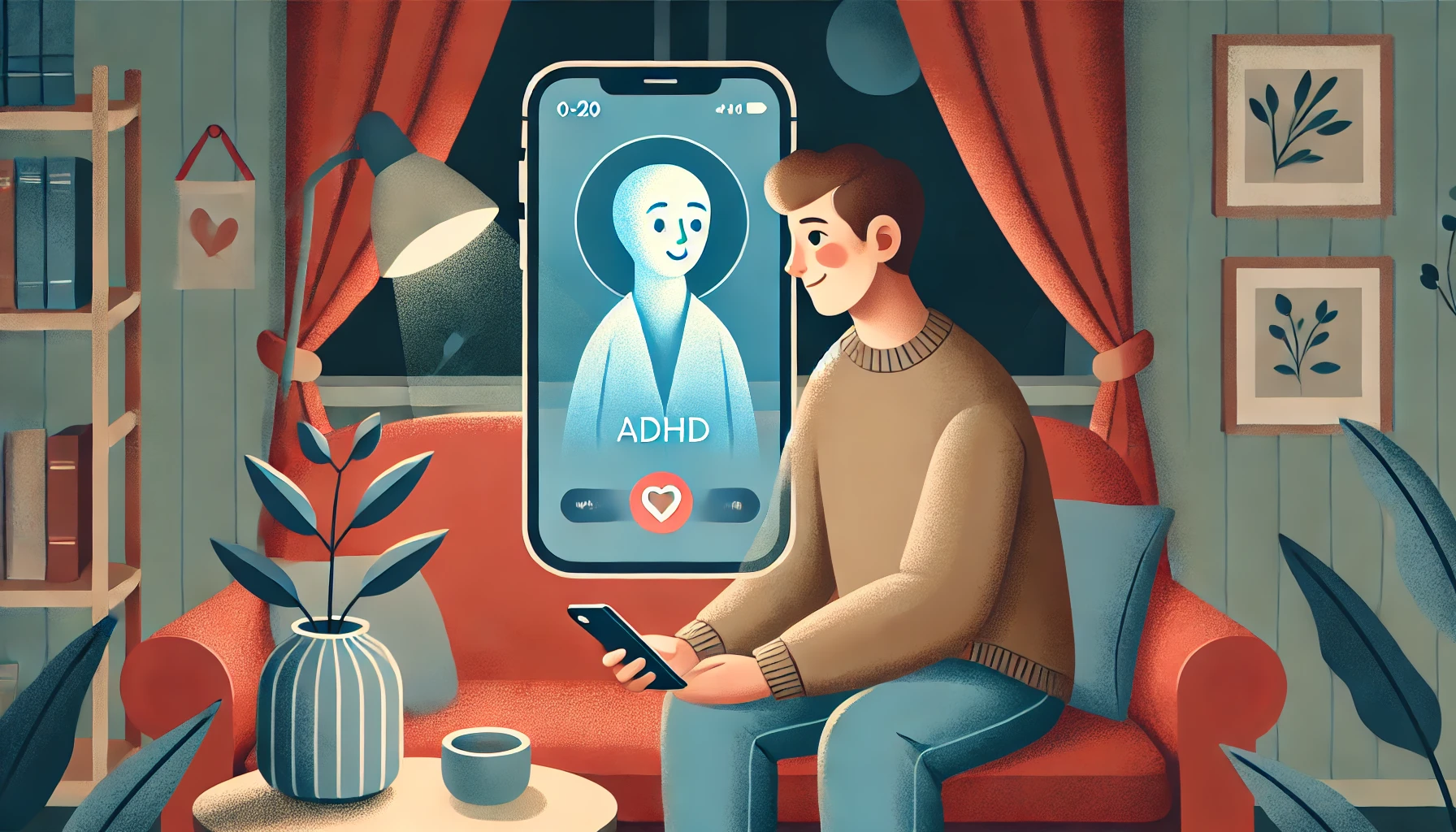Exploring the Frontier of AI-Powered Emotional Support
October 15, 2024 - Reading time: 8 minutes

The recent development of AI in virtual companionship is staggering. Replika, for instance, uses machine learning to have conversations with users and can provide emotional and mental health support.
Gatebox is offering a holographic virtual assistant to provide emotional and utilitarian support.
A recent study published in Computers in Human Behavior has researched how these virtual humans might revolutionize emotional support, with implications for various mental health conditions like ADHD.
The Research: A Closer Look
The study, led by Lisanne S. Pauw and colleagues, involved 115 participants who engaged in emotional sharing with a virtual human named Julie. This research aimed to examine whether interacting with a virtual human could provide socio-emotional benefits and if the type of support offered (emotional vs. cognitive) influenced these outcomes.
The Power of Virtual Support
The results of this study were nothing short of fascinating:
- Emotional Relief: Across the board, participants reported feeling better after their conversations with Julie. This improvement occurred regardless of whether they received emotional or cognitive support.
- Decreased Emotional Intensity: The intensity of negative emotions significantly reduced following the interactions. This finding suggests that virtual humans could play a role in helping individuals manage strong emotions.
- Improved Overall Mood: Beyond just the specific emotions discussed, participants experienced a general uplift in their mood after talking with Julie.
- Perceived Support Efficacy: Interestingly, both emotional and cognitive support were rated as equally effective by participants. This challenges the common assumption that emotional support is always preferable in times of distress.
- Relational Closeness: Despite knowing Julie was a virtual entity, participants reported feeling a sense of connection after their interactions. This hints at the potential for building meaningful rapport with AI companions over time.
Let's break down the perceived support efficacy ratings (on a scale of 1-7) in more detail:
| Support Type | Anger Condition | Worry Condition |
|---|---|---|
| Emotional | 3.57 (SD: 1.66) | 3.74 (SD: 1.75) |
| Cognitive | 4.08 (SD: 1.62) | 4.19 (SD: 1.70) |
Emotional vs. Cognitive Support: A Balanced Approach
The study compared two primary types of support:
- Emotional Support: This approach offered comfort, validation, and understanding. For example, the AI bot Julie might say, "I'm sorry to hear that" or "You have every right to feel angry."
- Cognitive Support: This approach aimed to change the way participants thought about their emotional situations. For instance, the AI bot Julie might say, "It sounds like you're learning from this experience" or "Maybe with time, they'll come around to your perspective."
As both types of support were effective, it suggests that virtual companions could be programmed to offer a mix of emotional and cognitive support, tailoring their approach to the individual's needs and preferences, as companies like Replika are trying to do.
Implications for ADHD and Beyond
One patient, Tom (name changed for privacy), once told me, "I wish I had a pocket therapist I could consult whenever my emotions start to spiral." For individuals like Tom, a virtual companion could serve as that always-available source of support, helping to bridge the gaps between therapy sessions.

Moreover, the cognitive support offered by these virtual humans could be particularly beneficial for ADHD individuals. By helping users reframe situations and gain new perspectives, these AI companions might assist in developing more flexible thinking patterns over time.
Building Long-Term Skills
One of the most exciting possibilities raised by this research is the potential for virtual companions to help individuals build lasting emotional regulation skills. Through consistent interactions and practice, users might internalize healthier coping strategies and more balanced thought patterns.
For instance, a virtual companion could help an individual with ADHD practice:
- Emotional awareness: Regular check-ins could improve recognition of emotional states.
- Impulse control: Having an outlet to process emotions might reduce reactive behaviors.
- Positive self-talk: Encouragement from the AI could counter negative self-perceptions.
- Cognitive reframing: Practice in looking at situations from different angles could become habitual.
The Safety of a Non-Judgmental Space
Many patients, especially those with ADHD, have expressed feeling judged or misunderstood when sharing their struggles. A virtual human offers a judgment-free space to express oneself freely.
As one participant in the study noted, "I found it surprisingly easy to open up to Julie. There was no fear of being criticized or burdening someone else with my problems."
Potential Challenges and Considerations
Some important considerations include:
- Privacy and data security: Ensuring the confidentiality of sensitive personal information shared with virtual companions is paramount.
- Ethical use: Guidelines need to be established to prevent over-reliance or misuse of these systems.
- Integration with human support: Virtual companions should complement, not replace, human connections and professional treatment.
- Continual improvement: AI systems will need ongoing refinement based on user feedback and emerging research.
Future Research Directions
This study opens up numerous avenues for future research:
- Long-term effects: How does extended use of virtual companions impact emotional regulation skills over time?
- Personalization: Can AI adapt its support style based on individual user preferences and needs?
- Specific applications: How might virtual companions be tailored for particular conditions like ADHD, anxiety, or depression?
- Cultural considerations: How can these systems be adapted for diverse cultural contexts and communication styles?
- Integration with other tools: Could virtual companions work in tandem with other digital health tools or wearable devices?
A Worrying Horizon
"The lack of transparency and methodological shortcomings is troubling, as it impacts AI's safe and effective application. Data engineering, critical for building AI models, often seems overlooked or misunderstood, and data management is frequently inadequate. These issues suggest that new AI models may be promoted too quickly, without ample time to assess their practical use in real-world environments," says Dr. Novillo-Ortiz.

